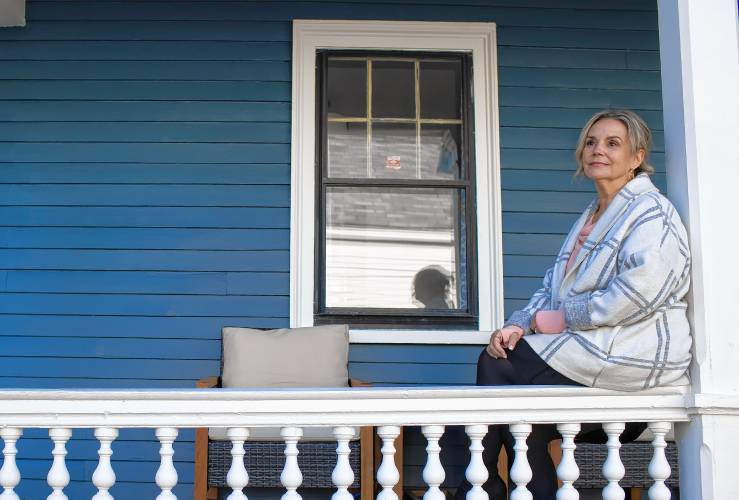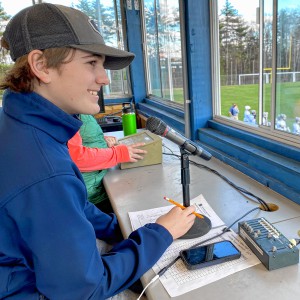Program looks to address burnout among health professionals
|
Published: 12-28-2023 5:14 PM
Modified: 01-02-2024 5:07 PM |
In the throes of the pandemic, Penelope Perri shouldered the responsibility of guiding a team of healthcare workers through a maze of changes.
While working as the director of Concord Hospital’s Employee Assistance Program, Perri found herself on the front line each day, providing support to her team across a wide range of issues, like safety, mounting stress and a growing mental health crisis.
To further complicate matters, the demands of the ever-shifting pandemic landscape where information about the virus was altered daily only added to the complexity of Perri’s role.
This constant flux thrust her into unrelenting pressure, compelling her to make critical decisions that became an overwhelming burden, pushing her to the edge of burnout.
“I could experience burnout depending on the volume and the acuity of the stressors like those in a caregiving profession,” Perri explained. “There was a lot of pressure to make good decisions to protect them, but also making sure that we served the people.”
Seeking a solution, Perri turned to coaching, learning the skills necessary to manage burnout.
“I think that burnout is not a certain moment that hits you. It’s more something that you know is coming and it kind of floats in and out and sneaks up on you,” said Perri.
She created her own coaching program, “Break Through Your Burnout,” aimed at helping other working professionals.
Article continues after...
Yesterday's Most Read Articles
 Update: Reactions for, against the more than 100 arrested at Dartmouth, UNH
Update: Reactions for, against the more than 100 arrested at Dartmouth, UNH
 Franklin police arrest man after accidental shooting Wednesday
Franklin police arrest man after accidental shooting Wednesday
 Opinion: New Hampshire, it’s time to acknowledge the stories of suffering
Opinion: New Hampshire, it’s time to acknowledge the stories of suffering
 Baseball: Merrimack Valley now 6-1 following wild game at Pembroke Academy
Baseball: Merrimack Valley now 6-1 following wild game at Pembroke Academy
 Food insecurity on the rise in N.H.
Food insecurity on the rise in N.H.
 Concord High graduate leads Pro-Palestine protests at Brown Univeristy
Concord High graduate leads Pro-Palestine protests at Brown Univeristy
Eight physicians across the state joined Perri’s pilot program that ran from Sept. 9 to Oct. 24.
One of them was Angela Yerdon, who chairs the Physician Health Committee at the New Hampshire Medical Society.
“It was just great to hear so many other voices saying the same thing. It just makes you feel like, ‘I’m not the only one that’s going through this and having similar struggles,’ ” said Yerdon. “Having a facilitated coach to help us figure out how can I show up tomorrow and do this a little bit differently and better.”
The New Hampshire Medical Society will offer more programs starting in January because of the positive outcomes it had on the physicians.
Recognizing that burnout impacts a broad spectrum of healthcare professionals, from nurses to medical assistants and caregivers, Yerdon envisions extending the program in the future to anyone facing these challenges.
Burnout manifests in various ways, with symptoms including physical and mental exhaustion, feelings of disempowerment and reduced professional efficacy.
A study by the American Medical Association revealed a concerning trend, with 62.8% of U.S. physicians displaying at least one burnout symptom in 2021, compared to 38.2% in 2020 and lower percentages in previous years.
This year, the New Hampshire Medical Society revitalized its Physician Health Committee, with a renewed focus on ensuring enhance a doctor’s ability to serve patients.
Over the past 18 months, the committee worked to provide resources for practicing physicians, which included Perri’s program. The focus was on helping them take care of themselves and identifying accessible resources in New Hampshire where they could connect with colleagues.
In the area of physician well-being, Yerdon cited a spectrum of self-care possibilities such as exercise, healthy eating, and systemic enhancements like workflow improvements. However, the committee decided to hone in on coaching as a tool to help physicians.
Amid the several coaching programs available, Perri’s hands-on experience with physicians uniquely positioned her as a valuable resource, offering tailored assistance to medical professionals navigating the distinctive challenges of their practice.
“There are many counselors available but physicians are a little bit of a different group because we take care of patients. So trying to find somebody who’s had specific training and to be able to take care of physicians, and then be like mental health crisis resource was challenging,” said Yerdon.
This program comprises 12 learning modules dedicated to equipping individuals with effective tools to combat burnout. Beyond just knowledge, it fosters a supportive environment for physicians to share their experiences and insights.
“Collegial connection is a less common experience for physicians these days and being able to connect with their colleagues is really important to their well being,” said Perri.
Editor’s note: This article has been changed to correct the name of Perri’s program, Break Through Your Burnout.




 New Hampshire jury finds state liable for abuse at youth detention center and awards victim $38M
New Hampshire jury finds state liable for abuse at youth detention center and awards victim $38M Jurors hear closing arguments in landmark case alleging abuse at New Hampshire youth center
Jurors hear closing arguments in landmark case alleging abuse at New Hampshire youth center Voice of the Pride: Merrimack Valley sophomore Nick Gelinas never misses a game
Voice of the Pride: Merrimack Valley sophomore Nick Gelinas never misses a game
